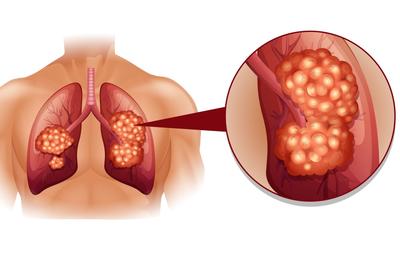
Diagnosed with Cancer? Your two greatest challenges are understanding cancer and understanding possible side effects from chemo and radiation. Knowledge is Power!
Learn about conventional, complementary, and integrative therapies.
Dealing with treatment side effects? Learn about evidence-based therapies to alleviate your symptoms.
Click the orange button to the right to learn more.
- You are here:
- Home »
- Blog »
- Lung Cancer »
- Elderly Lung Cancer- Worse Therapy Outcomes
Elderly Lung Cancer- Worse Therapy Outcomes

“physicians should be cautious when monitoring the effects of therapy in elderly lung cancer patients because of an increased incidence of severe toxicity”
It is not just elderly lung cancer patients that experience worse outcomes from chemotherapy and radiation. This is also true in colorectal cancer, breast cancer and many other cancers. The overall problem is that elderly people are underrepresented in cancer clinical trials. This is an established fact.
Let’s be honest. Chemotherapy and radiation kills the good cells right along with the bad cells. When I returned home from the hospital after my autologous stem cell transplant in ’95 (high-dose chemotherapy). I could barely climb the stairs to my condo.
I was 35 years old at the time. I can’t image what I would have felt like if I had been 70 years old…
Please consider clean nutrition, anti-cancer supplementation and simply lifestyle therapies such as daily, moderate exercise and mind-body therapies.
I am a long-term cancer survivor and cancer coach. While conventional cancer therapies such as surgery, chemotherapy and radiation may be necessary for a cancer patients treatment my experience has taught me that conventional therapies must be balanced with integrative and complimentary therapies before, during and after conventional (FDA approved) therapies.
Have you been diagnosed with lung cancer? If you would like to learn more about integrative and complimentary therapies to enhance your conventional therapy please scroll down the page, post a question or comment and I will reply to you ASAP.
Thank you,
David Emerson
- Cancer Survivor
- Cancer Coach
- Director PeopleBeatingCancer
Recommended Reading:
- Early Lung Cancer Therapies Reduce Cancer Deaths Significantly
- Early Lung Cancer, SBRT if Surgery is Not an Option
- The Cure for Lung Cancer May Be in Fish Oil
- Fish Oil Improves Response to Chemo, Improves OS for Lung Cancer Patients
Elderly patients with advanced non–squamous cell lung cancer experienced worse outcomes
“Elderly patients who participated in trials of concurrent chemoradiotherapy for stage III non–small cell lung cancer demonstrated higher rates of death, more toxicity and poorer OS than younger patients, according to study data…
Cancer clinical trials select for a younger patient population than the general cancer population, and elderly patients are frequently underrepresented in clinical trials…
Stinchcombe and colleagues gathered patient data from 16 phase 2 and phase 3 trials by NCI–supported groups…
- Elderly patients showed poorer OS…
- Patients aged 70 years and older experienced a higher rate of grade 3 or higher adverse events…
- Elderly patients showed significantly higher rates of grade 5 adverse events than younger patients
- had lower rates of treatment completion
- more elderly patients discontinued treatment because of adverse events,
- died during treatment
- refused further treatment
physicians should be cautious when monitoring the effects of therapy in elderly patients because of an increased incidence of severe toxicity. Future research should seek ways to decrease toxicity, especially in the elderly.”
Cancer in the Elderly: Challenges and Barriers
“The lengthening of life expectancy has contributed to changes in health/disease binomial approaches. Advanced age is a wide and varied stage in which early detection and lifestyle change may improve the life of patients.
Promoting public education and trainings to professionals is necessary so that they consider the developmental idiosyncrasy of elderly patients with cancer. This approach should also be applied to children having cancer. Our data reveal that the elderly are often unaware of being in a population at risk of cancer.
This case and the taboos about the disease make the elderly develop attitudes of resignation and denial. Thus, we must devise tools that can generate change and achieve self-efficacy in this stage. As mentioned, old people deal with complex situations.
Therefore, our study is developing two lines to further our research. First, we are currently determining how the attitudes of the elderly toward cancer can be improved using different tools. Second, we are exploring the reproduction of a comparative study in other countries to verify if the aspects that we have found are related to age or cultural differences. Similar studies have been conducted in Andorra and Florida and are open to the participation of other countries.”


